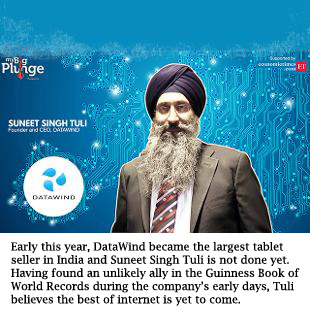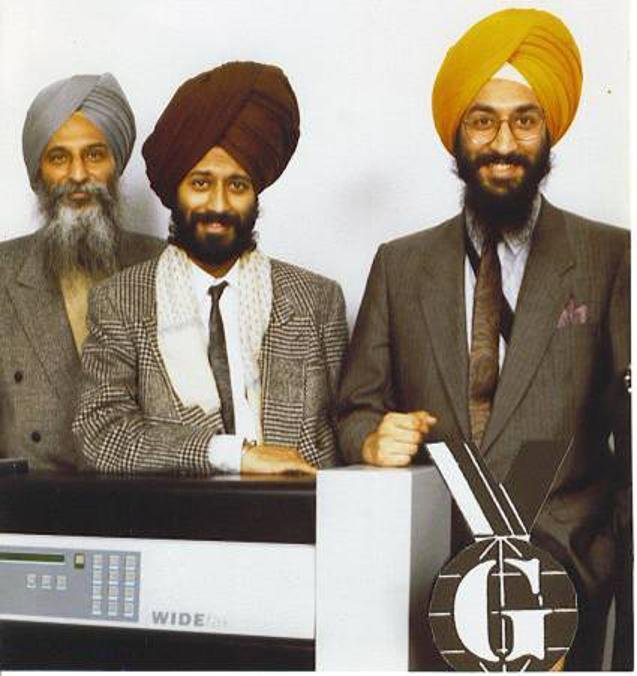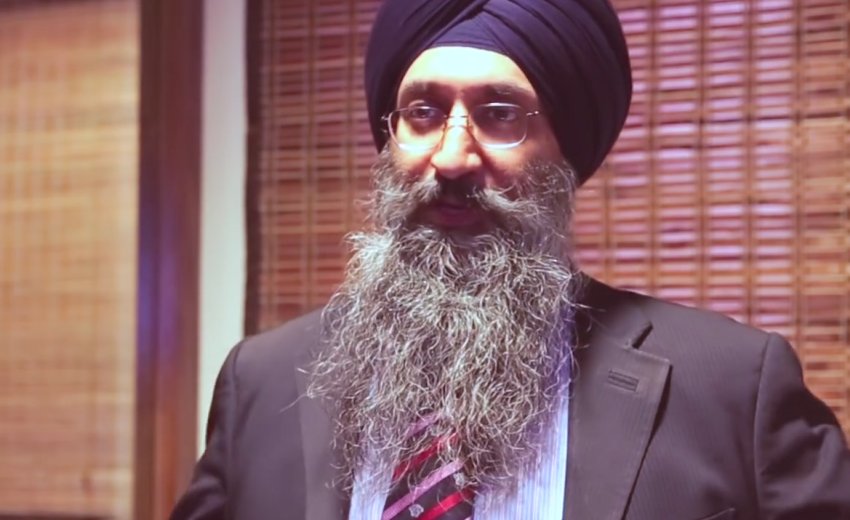 It was in the winter of 2012 that I first met Suneet Singh Tuli, the Founder and CEO of a little known Canadian firm called DataWind. The company had shot to fame when it won a Government of India tender for low cost educational tablet, Aakash.
It was in the winter of 2012 that I first met Suneet Singh Tuli, the Founder and CEO of a little known Canadian firm called DataWind. The company had shot to fame when it won a Government of India tender for low cost educational tablet, Aakash.
Tuli tells me that in 2010 when he first heard about the Indian government expressing interest to develop a low-cost tablet, mainly for educational purposes, he immediately wrote an op-ed piece in a newspaper saying it was not possible. "I was very skeptical and did not believe the idea was plausible," says.
But, by the end of January 2011, Tuli was one of the many technology provider CEOs who put ink on the tender to build the tablet for a then unheard-of $35.
Providential changes
So, how did his idea change? According to Tuli, the coming of Android as an operating system, which is an open source platform, opened the door a bit.
Also, Tuli realized that Android had a monetization engine attached to it, so one could make money on content applications and services and not just on the hardware. This allowed him to pull out a more aggressive price.
Tuli bid for the Aakash tablet at a market price of $49.98, on which he won the tender. The next lowest bid was at $65.
Earlier inventions
Tuli graduated from the University of Toronto in 1990 and is a colorful man. An engineer, in the days when there were no Internet, he noticed a problem when large blueprints/drawings needed to be cut in pieces to be sent through regular fax machines. Tuli's company DataWind came out with the large-format fax machines for engineers and architects in 1992.

Again, no sales happened and again Tuli took the familiar route of approaching the Guinness personnel.
Today, he holds the record for the world's thinnest scanner. It's been around two decades since Tuli created the record, but there is still no Chinese competitor to the product.
Rallying on
For a DataWind, a project like Aakash had huge implications. For all the controversies around the company and Aakash (which the company called Ubislate), became a household name. For every reason why the Aakash tablet may not work, there was a very strong case why it would. "Our aim for many years has been to prove that affordable technology can impact education," says Tuli.
An RTI query shows the Aakash tablet project was official shelved in 2015, but Tuli is firm on his quest to bridge the digital divide. "In places like the UK, the unconnected are the elderly, also known as silver surfers. In India it's a very different segment and it is the masses," says Tuli.
